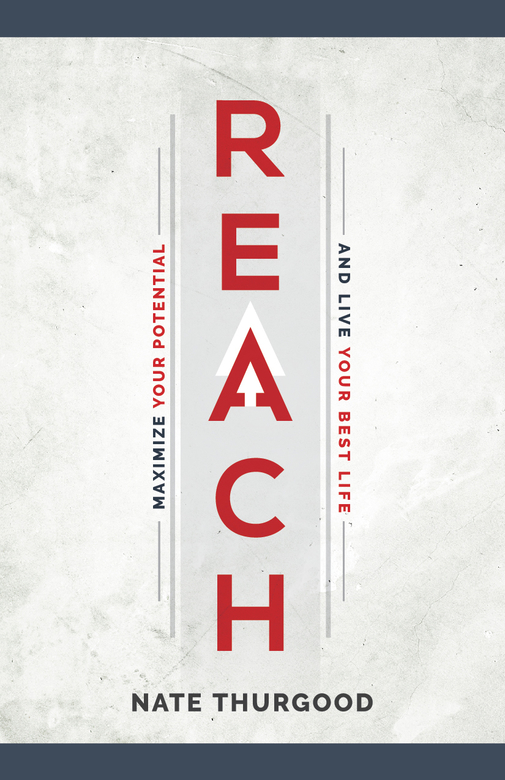Author Nate Thurgood spells out his recently developed strategy for leveling up your life and achieving more with your talents in his new book REACH: Maximize Your Potential and Live Your Best Life. With a conversational tone, a healthy dose of humility, and a contemporary philosophy that considers our latest global challenges, this book confidently asserts itself as a relevant guide for today’s strange times.
The five focal areas at the core of this philosophy are “intentionally generic,” with goal-setting as the major foundation for change. Establishing a balance between one’s wellness, personal relationships, professional career, spiritual health, and community engagement is not an original proposal for betterment, but his purpose is to then go beyond these bromides. That said, there are a lot of slick phrases, self-help buzzwords, and equivocal statements in the prose, particularly in the first few chapters, which may leave readers wondering whether the REACH program is anything more than just an acronym.
There are many books that claim to help readers unlock their potential and boost their chances of making a real impact on the world, and Thurgood’s guide makes many of the same promises. Self-help veterans will know to be wary of enticing promises backed up by vague strategies and flashy catchwords. There is something a bit too polished about Thurgood’s approach and his “too good to be true” attitude, which may make some readers wonder if the book is promising too much.
Still, the REACH group theory does stand out for its originality, separating this book significantly from other books in the field. Rarely does self-help focus on what others can bring towards personal improvement, but having a REACH group provides the accountability and support that individuals so often lack, or fail to find in a traditional therapist or mentor. Working with one another as equals on individual but parallel journeys removes the power dynamic between teacher and student, and instead celebrates every participant as both a source and recipient of knowledge.
On a technical level, as the author admits early on, this book isn’t written by a professional, compiled via “years of personal brainstorming, managing people, and leading highly complex projects.” The desire to compile the experiences and details of this program is a valid one, but the execution doesn’t always lend itself to a smooth reading experience. There is a lot of repetition of ideas, often rephrased in only slightly different ways multiple times in successive paragraphs. Some variation of “maximize your potential and live your best life” is included dozens and dozens of times. Some of the information is also incredibly basic, including most of the suggestions within the health and wellness focal area. An editor could tighten up much of the filler narration and highlight the more original and impactful points, rather than letting so much of Thurgood’s sage advice be muddled amidst pop psychology jargon.
Despite the stumbles in writing and the occasional failure to achieve an authentic voice, there are countless pearls of wisdom in these pages, making it a worthwhile read for those seeking a fresh approach.
Book Links
STAR RATING
Design
Content
Editing
Get an Editorial Review | Get Amazon Sales & Reviews | Get Edited | Get Beta Readers | Enter the SPR Book Awards | Other Marketing Services
























Leave A Comment